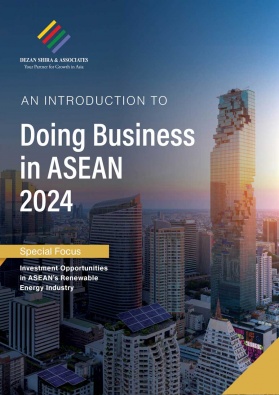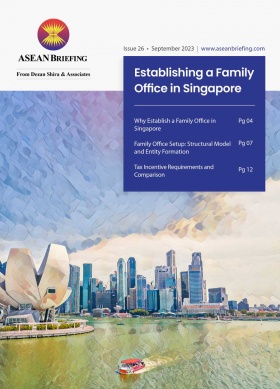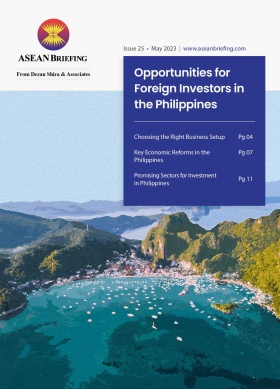A Guide to HR Compliance in the Philippines
Expatriate workers and their employers in the Philippines must understand the process of obtaining a work visa and employment permit to legally work in the country.
Labor law
The Labor Code is the main employment statute in the Philippines and the Department of Labor and Employment (DOLE) is the administrative entity in the field of labor and employment.
Employment permit and relevant visa categories
Foreign nationals planning to work in the Philippines are required to secure a work visa, which can be obtained from the Philippines’ Bureau of Immigration (BI), as well as an Alien Employment Permit (AEP) issued by DOLE.
Alien employment permit
An Alien Employment Permit (AEP) authorizes a foreign national to work in the Philippines. Though not a work permit, AEP is an important legal document required to secure a work visa in the country.
Some foreign nationals are exempted from obtaining an AEP. These include:
- All members of the diplomatic service and foreign government officials;
- Owners and representatives of foreign principals whose companies are accredited by the Philippines Overseas Employment Administration (POEA); and
- Permanent resident foreign nationals and probationary or temporary resident visa holders under the Philippines’ immigration law.
Besides, foreign nationals working in the Philippines whose employers are located abroad, or those who do not have an employer are also excluded from securing an AEP.
An AEP is valid for one year or for the complete duration of the employment contract not exceeding three years. However, the issued AEP is valid only for the position and company that it was secured for. A new AEP must be secured in the event an employee assumes a new job position within the same company or joins a new company. The application for an AEP may be filed by the employer or the foreign nationals themselves.
Requirements to apply for an AEP
- Application form;
- Photocopy of employee’s passport with valid visa;
- All documents related to the contract of employment;
- Photocopy of current AEP (in cases of reissue); and
- Photocopy of mayor’s permit or photocopy of business permit.
Pre-arranged employment visa or 9 (G) visas
The most common type of work visa issued in the Philippines is the 9 (G) visa, also known as the Pre-arranged Employment Visa. It allows employers in the country to employ foreign nationals with skills, qualifications, and experience that may be in short supply in the country. The issuance of the 9 (G) visa falls within the competencies of the BI.
A 9 (G) visa is applied through an employer’s sponsorship. Therefore, securing a job with a Philippines-based company is a prerequisite. Further, applicants must obtain an AEP before securing a 9 (G)-work visa.
Applicants need to note that a 9 (G) holder may only work for the company that has sponsored his/her work visa. In the case of a change of employer, the 9 (G) status is downgraded to a tourist visa, and foreign workers are required to make a new work visa application.
A 9 (G) is valid for an initial period of one, two, or three years, and can be extended up to three years at a time, depending on the duration of the employment contract. The validity, however, cannot exceed the period granted under the AEP issued by the DOLE. The visa can be renewed multiple times.
Requirements to apply for a 9 (G) visa
- A notarized certification of the number of foreign and Filipino employees of the employer;
- Application form (Form No. 2);
- A medical and physical examination report (FA Form No. 11) issued by an authorized physician;
- Copy of employment contract, if any;
- Four passport-sized pictures of the applicant;
- Police clearance issued by the police in the applicant’s country of citizenship;
- Photocopy of employment contract, Securities and Exchange Commission (SEC) certification, and Articles of Incorporation (AOI);
- A certified true copy of AEP from DOLE;
- BI clearance certificate;
- Alien certificate of registration;
- Applicant’s passport; and
- Other documents supporting the employment of the applicant.
Treaty trader’s visa or 9 (D) visa
A 9 (D) Visa or Treaty Trader’s Visa is for foreign nationals belonging to countries that have a bilateral trade agreement with the Philippines. Currently, the Philippines has such an agreement with the United States, Japan, and Germany.
Requirements to apply for a 9 (D) visa
To qualify for a 9 (D) Visa, foreign nationals must prove that:
- They or their employers are engaged in substantial trade, involving an investment of at least US$120,000 between the Philippines and their country of origin;
- They intend to leave the Philippines upon the completion or termination of their work contract;
- They hold the same nationality as their employer or company’s major shareholder; and
- They hold the position of a supervisor or executive in the company.
The Treaty Trader’s Visa is valid for up to two years.
Other nationalities who want to invest in the country can apply for special kinds of resident visas. These are:
- Special resident retiree’s visa – available to international investors who are at least 35 years of age and who pay a deposit starting from US$1,500; and
- Special investor’s resident visa (SIRV) – this allows the holder to reside in the Philippines for an indefinite period. They must be willing to invest at least US$75,000 in the country.
Social insurance
The employer must make social security contributions to the Social Security System (SSS) on behalf of the employee. This monthly amount corresponds to the salaries of the covered employees.
The SSS premium for employers and employees will differ depending on the employee’s monthly compensation bracket. The SSS was scheduled to increase the premium rate by one percent in 2021 by the Social Security Act of 2018, which was signed by the President in 2019. The act allowed the pension fund to increase the premium contribution rate by one percentage point every other year starting in 2019 until it reached 15 percent. However, the scheduled hike for 2021 was suspended by a bill passed in February 2021.
For formal employees, the SSS contribution rate remains 12 percent of the monthly salary credit. As of September 2020, the Employees’ Compensation Program was expanded to include self-employed SSS members, for whom the contribution rate is also 12 percent.
There will be a monthly charge of three percent for any overdue contributions to the SSS program. Employers contribute PHP 1,600 (US$31.71) per month for employees in the highest salary bracket. The employee will contribute PHP 80 (US$1.59) to PHP 800 (US$15.85) based on their salary bracket.
In addition to the social security contributions, the employer and employee also must contribute to the Philippine Health Insurance Corporation (PHIC) and the Home Development Fund (HDMF). Foreign employees are no longer required to pay into the HDMF.
The maximum contribution is four percent of the monthly salaries of between 10,000 PHP (US$2,288) and 80,000 PHP (US$18,310). The employer pays half while the employee pays the remaining half.
Christmas bonuses and 13th-month pay
The 13th-month pay and Christmas bonuses in the Philippines are important aspects of HR policy that employers need to understand.
A key topic that often prompts questions is the distinction between the two systems and the tax rules surrounding them. Though both bonus payments are distinct, they can interact to create diverse tax outcomes.
Distinction between 13th month pay and Christmas bonuses
The key distinction between the 13th-month pay and Christmas bonuses is that the former is mandatory by law for all non-managerial staff, while the latter is at the discretion of the employer. Furthermore, the 13th month’s pay must be paid on or before December 24. It has become common for employers to pay half at the beginning of the school year and the rest in the days running up to Christmas. In contrast, there is no set date for Christmas bonuses to be paid; as with the amount, it is at the discretion of the employer.
The 13th-month pay
Eligibility
Employees excluded from the 13th-month pay fall into the following categories:
- Managers;
- Employees covered by civil service law;
- Housekeepers and persons in the personal service of another; and
- Employees are paid on a commission or task basis.
Calculation
The 13th month’s pay can be calculated as one-twelfth (1/12) of the basic salary of the employee within one calendar year. Alternatively, if the employee is paid monthly, the following equation can be used:
(Basic Monthly Salary x Number of Months Worked) / 12
Taxation
The 13th month’s pay is exempt from tax, up to a limit of PHP 90,000 (US$1,783). If the 13th month pay exceeds this limit, the excess will be added to the salary of the employee and included in the income tax calculation.
Christmas bonuses
Eligibility
The Christmas bonus is not an enforceable obligation and can only be released at the employer’s discretion. They are usually issued to show appreciation and gratitude to employees for their services during the year.
Taxation
The taxation of Christmas bonuses must be split into two parts: non-performance-based bonuses (also known as ‘other benefits’) and performance-based incentives.
Other benefits
‘Other benefits’ fall into the same category as the 13th-month pay and are subject to the same PHP 90,000 limit (US$US$1,783). In other words, if ‘other benefits’ and the 13th month pay combine to a total of less than PHP 90,000, no tax is to be paid. If the combination of ‘other benefits and the 13th-month pay exceeds the limit, the excess will be subject to income tax.
About Us
ASEAN Briefing is produced by Dezan Shira & Associates. The firm assists foreign investors throughout Asia and maintains offices throughout ASEAN, including in Singapore, Hanoi, Ho Chi Minh City, and Da Nang in Vietnam, in addition to Jakarta, in Indonesia. We also have partner firms in Malaysia, the Philippines, and Thailand as well as our practices in China and India. Please contact us at asean@dezshira.com or visit our website at www.dezshira.com.







